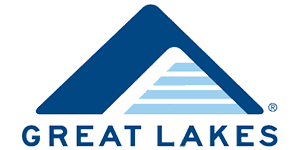The United States and Canada depend on the Great Lakes for their economies and ecosystems. They are one of the world’s largest watery systems. These are the Great Lakes: Superior, Michigan, Huron, Erie, and Ontario. They run across North America. A lot of the line between the two countries is made up of these old bodies of water that were formed by glaciers during the last ice age.

Key Features:
- Surface Area: Combined, they cover roughly 94,250 square miles.
- Volume: They hold an estimated 5,439 cubic miles of fresh water.
- Shoreline: Nearly 11,000 miles, home to diverse ecosystems and significant wetlands.
There have been a lot of protection efforts in the Great Lakes area because of environmental problems like pollution and invasive species like zebra mussels and carp. For example, the lakes help move produced goods to different ports by providing important shipping lines.
From the Great Lakes to the Atlantic Ocean, this waterway connects via the Saint Lawrence Seaway, a network of channels, canals, and locks that includes the Welland Canal and the Soo Locks.
Significant Waterways:
- Detroit River: Connects Lake St. Clair with Lake Erie.
- St. Marys River: Joins Lake Superior with Lake Huron.
- Straits of Mackinac: Link Lakes Michigan and Huron.
The lakes are home to many kinds of fish, including bass, trout, walleye, and salmon, which helps the fishing business grow. In U.S. states like Minnesota and Canadian areas like Georgian Bay, lakes are important for both business and leisure. They also play a big part in the weather, as the cover of ice can change the temperatures of whole regions.
Human Impact and Efforts:
- Industry: Utilized for transportation of cargo and as a water source for production.
- Recreation: Offers activities from boating to fishing.
- Conservation: Initiatives to reduce pollution and combat erosion.
- Research: Ongoing studies on the dynamics of water flow, wildlife migration, and lake bathymetry.
While these lakes collectively form the largest group of freshwater lakes on the planet, they face challenges such as fluctuating water levels and ecological balance. Despite these concerns, MyGreatLakes remain crucial to the continent’s health and heritage.